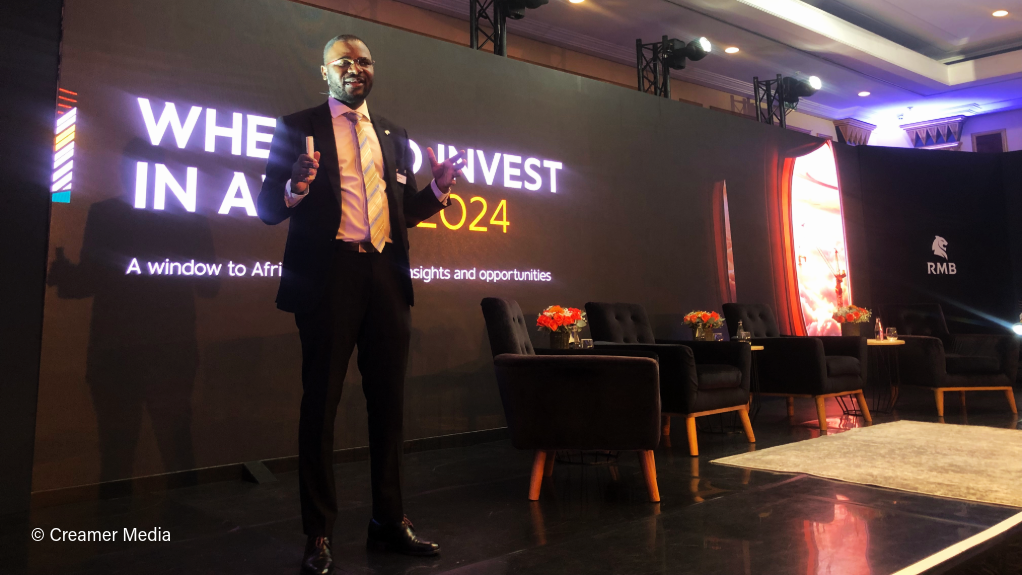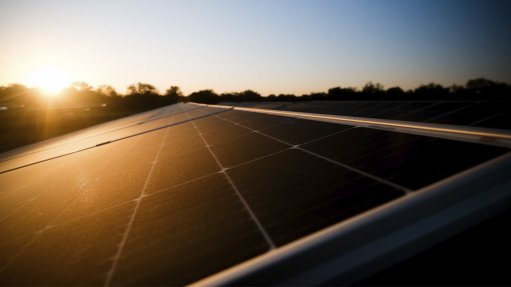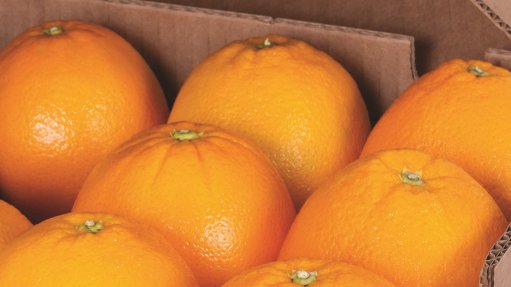Poor social development threatens South Africa’s economic sustainability, report shows
Persistently high youth unemployment rates and some of the highest levels of inequality globally have led financial institution Rand Merchant Bank (RMB) to rank South Africa twenty-ninth out of 31 African countries in terms of social and human development in its ‘Where to invest in Africa 2024’ report, which was released on August 6.
Overall, South Africa ranks fourth on the continent in terms of investment attractiveness after the significantly smaller island nation economies of Seychelles and Mauritius, with Egypt coming in third. All three have booming tourism-fuelled economies.
The Seychelles and Mauritius, while presenting attractive investment environments, are two very small islands. Consequently, among nations of substantial size, Egypt ranks at the top. With a GDP of $394-billion in 2023, Egypt was the largest economy on the continent last year.
South Africa still leads Africa in terms of foreign exchange stability and liquidity. However, its GDP has slipped into second place behind Egypt and its poor GDP growth forecast, income inequality and unemployment have caused investment interest to decline.
The rankings in the RMB report are based on four broad categories, in which South Africa ranks in the top ten for three. In terms of economic performance and potential, South Africa ranks fifth after Egypt, Nigeria, Ethiopia, and Tanzania.
Notably, in the market accessibility and investment climate category, South Africa ranks first. In terms of economic stability and investment climate, South Africa ranks seventh after Seychelles, Mauritius, Botswana, Namibia, Rwanda and Morocco.
Speaking at the report launch in Johannesburg, Gordon Institute of Business Science economics and finance professor Adrian Saville said that, despite South Africa ranking in the top ten in three out of the four pillars of measurement, the low social and human development score would undermine the longevity of South Africa’s dominance in the other three areas.
“The social and human capital development component brings an absolutely fundamental lens to think about the performance and the longevity of your business in-country. It is the society that gives you the ability to operate.
“This social dimension is an absolutely critical component. If your business is doing well, but society is stumbling and stuttering, you're actually running an extractive enterprise, and you'll run out of runway in the fullness of time,” he said.
RMB chief economist Isaah Mhlanga noted that it was surprising that South Africa’s society and, subsequently, economy had remained so stable despite the high unemployment rates and severe income inequality.
“Look at the Middle East and North African countries that have had unemployment rates of around 15%. At that level, they had civil unrest. You could almost say it's a miracle that we haven't seen what happened [there]. Their social instability happened with an unemployment rate of 15%. We have double that. Yet we have been able to have a relatively stable social environment,” he told Engineering News.
Mhlanga pointed out that the likely reason for the continued stability, despite the lack of human and social development, was the widespread availability of social support from the government.
“You could interpret your social grants [as] the price we pay for social stability. If that has to be taken away, it means we can end up with a socially unstable country. But that, in itself, does not mean we need to perpetuate social grants forever.
“We need to find ways to transition people out of government support and into employment. That's the more sustainable route to ensuring social stability,” he explained.
He said a lack of skills in the country, contrasted by a high unemployment rate, represented a conundrum for South Africa to solve.
“Many companies find it difficult to obtain specific skills that are required by the economy. Yet, we are a country with the highest unemployment rate among our peers. So there is a conundrum: no skills [and] high unemployment, which means it's a cocktail of factors that is ripe for social instability,” Mhlanga said.
Saville pointed out that, when considering population growth and productivity potential side by side, it became apparent that economic growth was not keeping pace.
“We are not fit for purpose. We struggle to produce structurally economic growth that even approximates population growth. That leaves us . . . socially stuck. We have elevated youth unemployment, and here, South Africa fails by a very wide margin. There is an unquestionable component here that speaks to the South African policy imperative,” he said.
Mhlanga emphasised that social stability was critical, as businesses were given the right to operate in an economy by its citizens.
“If the citizens are not [getting along] well in a socially stable environment, it becomes difficult for you to actually deploy capital in those economies. The improvement in the social aspects produces a stable operating environment, but it is also the genesis of skills which are required by investors,” Mhlanga said, noting that low social and human development rankings gave policy makers an opportunity to make some changes.
However, he emphasised that, although the 20% weighting of the social and human development score did not pull South Africa’s overall ranking down too dramatically, it would, in the long term, impact on the country’s performance in other aspects of the rankings if not addressed by policy reform and, importantly, implementation thereof.
“We are the most unequal country in the world. Also, when you have unemployed young people en masse, it becomes difficult to assume you are going to have a social environment that is stable indefinitely.
“We have to address the issues of unemployment. That would improve the investability of the economy. You can't sustain an economy [for a] very long time when the social aspect is not stable. Therein lies the risk for this country,” Mhlanga said.
However, Saville noted that a low ranking in terms of certain aspects of the report did not necessarily spell doom for those economies that had room to grow, pointing out that the report only concerned itself with the top 31 countries out of a total of 54 in Africa.
“If you're at the bottom of the table, it doesn't mean you are uninvestable, unattractive or not a viable destination. It means that you rank thirty-first in the A-class,” he said.
Article Enquiry
Email Article
Save Article
Feedback
To advertise email advertising@creamermedia.co.za or click here
Comments
Press Office
Announcements
What's On
Subscribe to improve your user experience...
Option 1 (equivalent of R125 a month):
Receive a weekly copy of Creamer Media's Engineering News & Mining Weekly magazine
(print copy for those in South Africa and e-magazine for those outside of South Africa)
Receive daily email newsletters
Access to full search results
Access archive of magazine back copies
Access to Projects in Progress
Access to ONE Research Report of your choice in PDF format
Option 2 (equivalent of R375 a month):
All benefits from Option 1
PLUS
Access to Creamer Media's Research Channel Africa for ALL Research Reports, in PDF format, on various industrial and mining sectors
including Electricity; Water; Energy Transition; Hydrogen; Roads, Rail and Ports; Coal; Gold; Platinum; Battery Metals; etc.
Already a subscriber?
Forgotten your password?
Receive weekly copy of Creamer Media's Engineering News & Mining Weekly magazine (print copy for those in South Africa and e-magazine for those outside of South Africa)
➕
Recieve daily email newsletters
➕
Access to full search results
➕
Access archive of magazine back copies
➕
Access to Projects in Progress
➕
Access to ONE Research Report of your choice in PDF format
RESEARCH CHANNEL AFRICA
R4500 (equivalent of R375 a month)
SUBSCRIBEAll benefits from Option 1
➕
Access to Creamer Media's Research Channel Africa for ALL Research Reports on various industrial and mining sectors, in PDF format, including on:
Electricity
➕
Water
➕
Energy Transition
➕
Hydrogen
➕
Roads, Rail and Ports
➕
Coal
➕
Gold
➕
Platinum
➕
Battery Metals
➕
etc.
Receive all benefits from Option 1 or Option 2 delivered to numerous people at your company
➕
Multiple User names and Passwords for simultaneous log-ins
➕
Intranet integration access to all in your organisation





















